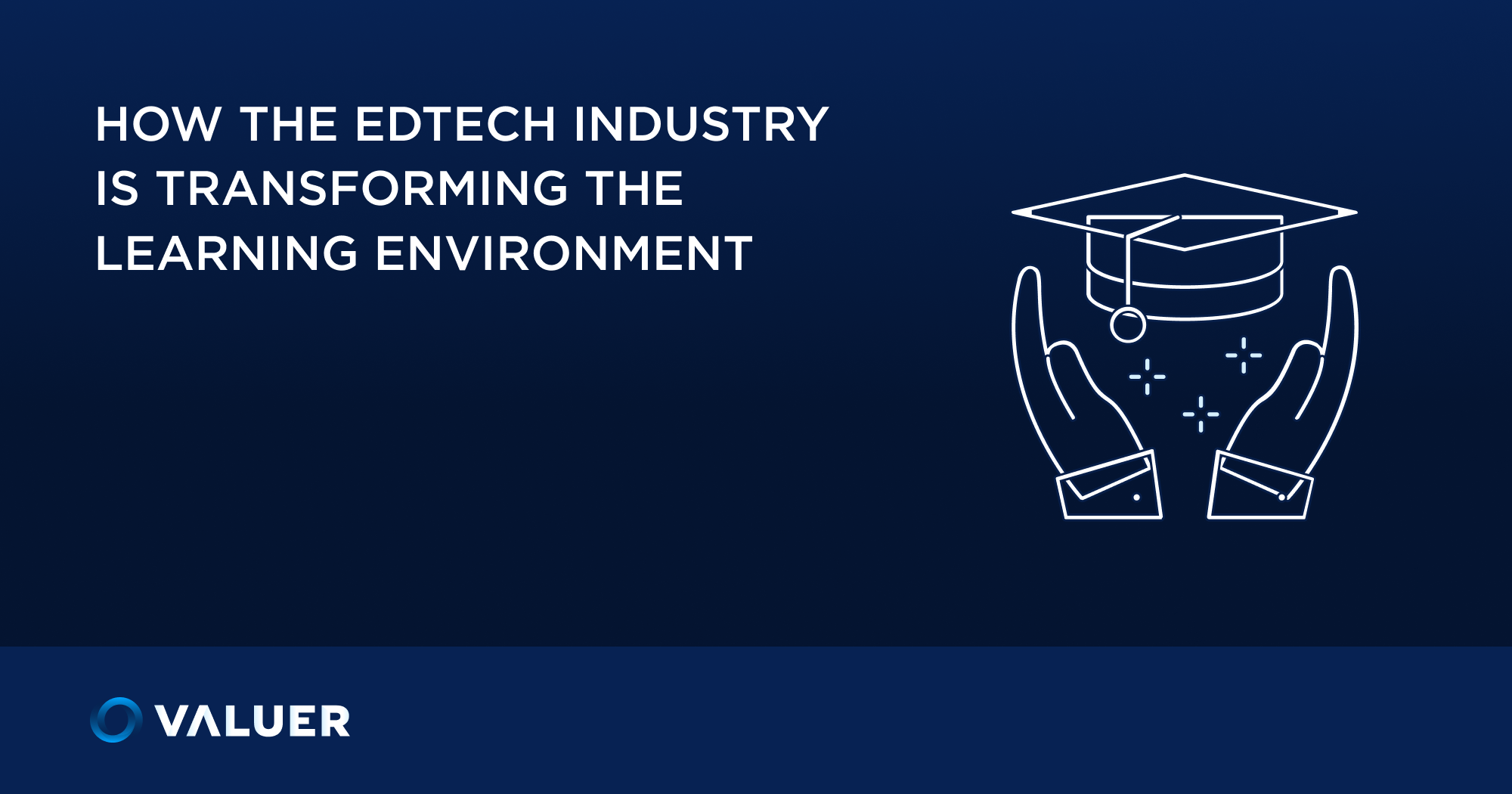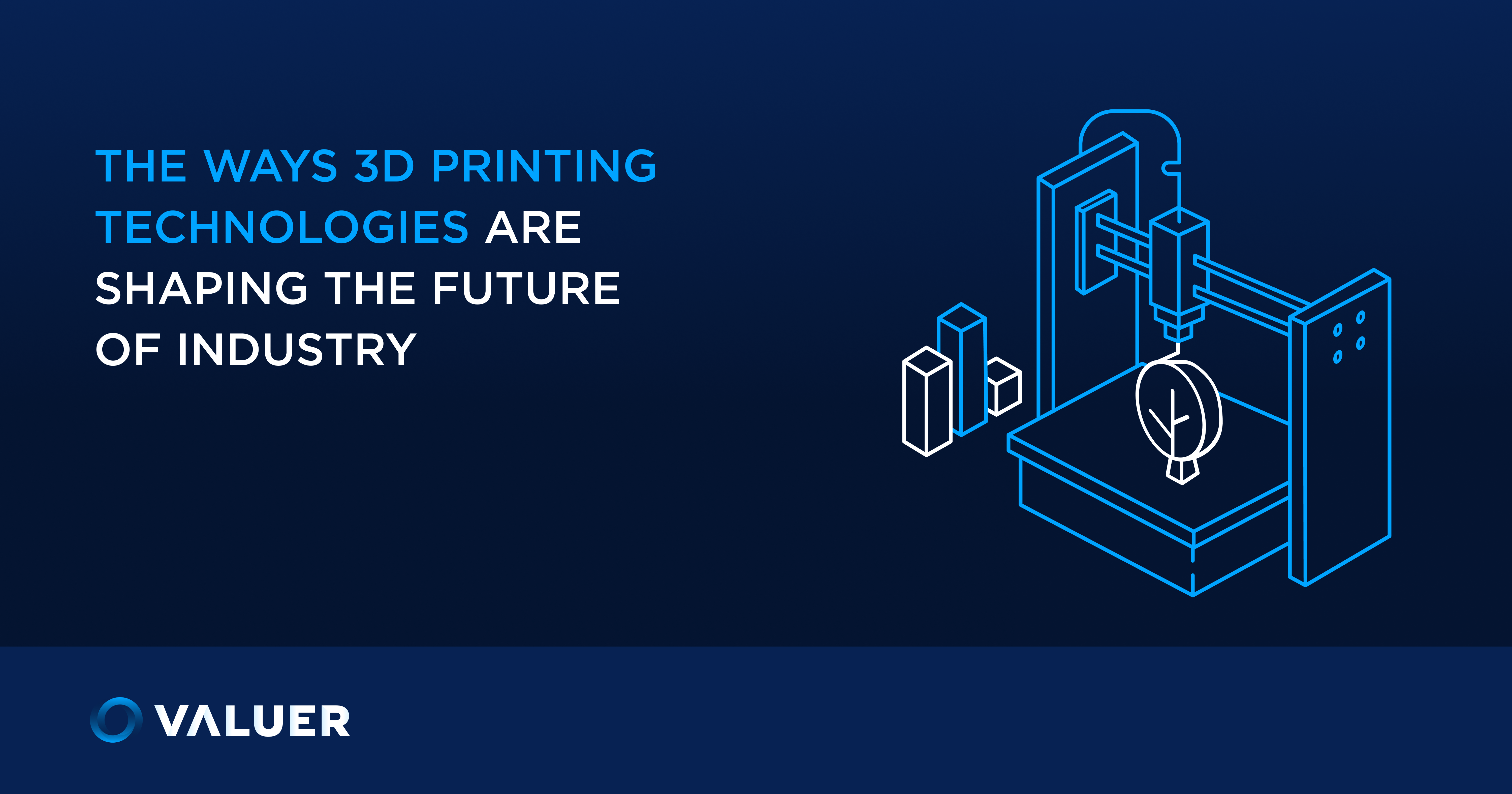*Updated December 2022
EdTech trends in the digital era
The global education technology (EdTech) market is a rapidly growing industry that comprises a wide range of business possibilities - from early-stage startups to middle-market companies all the way up to publicly traded companies.
If we consider the three main education categories - K-12, post-secondary, and corporate/professional training - each of these categories carries its own distinct characteristics within the EdTech market. In other words, each level of education carries its own unique possibilities in terms of what technology is applicable, which allows for different end users, buyers, and funding mechanisms.
In emerging markets, the digital transformation of education is gaining a lot of traction. Investors and stakeholders from a range of industries can benefit if they seize new opportunities for collaboration. If we look beyond the reasoning of transitioning to a more, digital learning environment due to the pandemic, there are a variety of other factors that will shape the future and speed of the digital transformation in education.
[Related Article - How the EdTech Industry is Transforming the Learning Environment]
Jan-Peter aus dem Moore and Stefano Martinotti, partners at McKinsey, sum up 5 factors that will shape the future of digital education:
1. Common accreditation standards for digital curricula and credentials
2. Transparency around outcomes
3. Data privacy regulations and IP rights
4. Building and strengthening digital capabilities at all levels
5. Efficient setup and deployment of secure IT infrastructure
A 2022 report by Brighteye Ventures and Dealroom shows that globally, edtech startups received $20 billion in VC funding, 1.3 times more than in 2020. The largest share of funding was accounted for by mega rounds, i.e. 62% of the total amount. Regionally, the US leads for edtech unicorns creation, having 32 edtech unicorns out of 64 globally.

Online learning will continue to grow
Over the last decade, and even more so now than ever, there has been a major shift towards online learning. This is evident from early-stage VC-backed players seeking to disrupt higher education and corporate learning.
Companies are investing heavily in online learning across a variety of sectors, where some are focused on offering introductory-level college/university courses for a fraction of the price of traditional education, whereas others are focused on providing training videos for healthcare professionals and major companies.
Here are some major players seeking to disrupt aspects of higher education and corporate learning:
Outlier
 Outlier is a startup that allows students to take online courses for college credit. Co-founder and creative director of the popular online education platform Masterclass, Aaron Rasmussen, stated that his goal is to address the rising cost of higher education by offering an affordable alternative. The company has recently raised $30 million in Series B funding to a total of $46 million.
Outlier is a startup that allows students to take online courses for college credit. Co-founder and creative director of the popular online education platform Masterclass, Aaron Rasmussen, stated that his goal is to address the rising cost of higher education by offering an affordable alternative. The company has recently raised $30 million in Series B funding to a total of $46 million.
Osmosis
 Currently at over 2.5 million subscribers on YouTube, Osmosis is a leading medical & health education platform that provides medical information to both current and future clinicians and caregivers. Its YouTube channel mainly focuses on general consumer health and medical concepts whereas its Osmosis.org learning platform features more in-depth videos for health professionals and students. The company has recently raised $4 million in new funding.
Currently at over 2.5 million subscribers on YouTube, Osmosis is a leading medical & health education platform that provides medical information to both current and future clinicians and caregivers. Its YouTube channel mainly focuses on general consumer health and medical concepts whereas its Osmosis.org learning platform features more in-depth videos for health professionals and students. The company has recently raised $4 million in new funding.
Coursera
Partnering with more than 275 leading universities and companies, Coursera offers a wide range of learning opportunities to individuals and organizations worldwide. With more than 107 million worldwide users building new skills and confidence, Coursera provides a flexible, affordable, and job-relevant online learning platform. Coursera went public in 2021, when it was valued at $7 billion. In the first quarter of 2022, the company reported total revenue of $120.4 million, up 36% from $88.4 million a year ago.
Degreed
Using data and analytics, Degreed drives businesses forward by giving employees skills and development using their upskilling platform. A corporate education platform for employees, its platform offers curated educational content, which includes courses, videos, podcasts, and opportunities for employees to earn certificates and credentials. In 2021, Degreed raised $153 million in Series D funding totaling more than $411 million in venture funding to date.
Galvanize
Galvanize is a technology ecosystem for learners, entrepreneurs, startups, and established companies. The company offers startup office space and coding and data science boot camp programs aimed at preparing the next generation of students to keep up with the demand for technical positions amidst the technological revolution. In early 2020, K12 Inc, one of the largest education management organizations (EMO), acquired Galvanize in a $165 million deal.
Emerging technologies making their way into education
Despite initial pushback from the education establishment, it was not long before they realized the value of today’s innovations which use cutting-edge and emerging technologies to enhance the learning experience. Just to mention a few; virtual reality (VR), augmented reality (AR), artificial intelligence (AI), machine learning, robotics, and even blockchain are all making their way into the products of learning tools that provide so much potential.
If you are an educator or someone who is involved in one's learning process, following the technological trends in education is essential. It is up to you to figure out which technology is best suited for the type of teaching and training.
Below are two examples of companies that are harnessing the tools of emerging technology for teaching:
Labster
Labster is a technology company that develops fully interactive advanced lab simulations for e-Learning. These interactive simulations are powered by VR for students that wish to explore and conduct lab experiments in a wide range of life science disciplines. The Labster community involves more than 900,000 active students and more than 1,800 institutions. In 2022, Labster brought in another $42.8 million, with a combined total of $150.5 million to date.
Niantic
 Niantic Labs, the company behind the popular AR game Pokemon Go, was originally formed as an internal startup within Google and later became an independent entity. Being leaders in AR, the company is focused on building a state-of-the-art planet-scale augmented reality platform for current and future generations. Furthermore, the company announced back in 2019, that they are working to expand the horizons of education by continuing to invest in AR education applications. Their last round of funding scored the company $300 million in a Series D fundraising round.
Niantic Labs, the company behind the popular AR game Pokemon Go, was originally formed as an internal startup within Google and later became an independent entity. Being leaders in AR, the company is focused on building a state-of-the-art planet-scale augmented reality platform for current and future generations. Furthermore, the company announced back in 2019, that they are working to expand the horizons of education by continuing to invest in AR education applications. Their last round of funding scored the company $300 million in a Series D fundraising round.
What the future holds for EdTech
The list of companies highlighted in this article is just a fraction of the number of EdTech companies that are making a presence on the world stage. In the months and years ahead, we will see the industry diversifying even further, creating a large runway of opportunity across the business lifecycle. Beyond online learning, immersive technology, and AR, advancements in artificial intelligence, robotics, and blockchain technology will present themselves in a wide range of EdTech applications.
Valuer, with its data-driven platform, allows corporates to capture these opportunities by capitalizing on emerging markets that are rapidly evolving in an era of digital globalization. In other words, the Valuer AI platform is able to identify unique business models and startups that provide value to your company’s unique innovation strategy.
As long as businesses and industry leaders are focused on putting the student at the center of attention, the best companies, investors, and impactors within the industry will come out on top. Exploring ways how to reduce costs, deliver quality education for both children and adults, and to deliver impactful results will prove to be the long-term winners as the EdTech market continues to evolve.
The digital transformation in education is gaining traction with new solutions emerging across a wide range of industries that are proving to show enormous potential for societal benefits and economic growth. Combining hyperscaling online learning to reach massive amounts of people with emerging technologies provides an opportunity for ‘digital lifeline learning journeys.’










